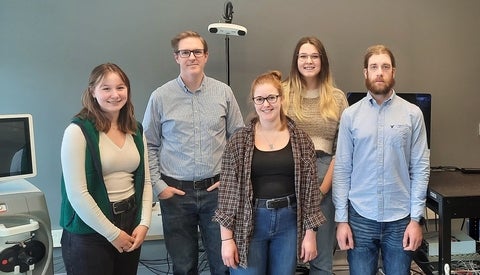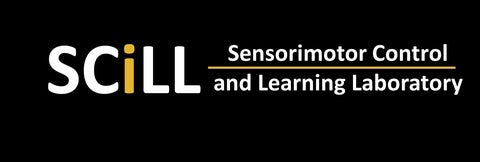Research in the Sensorimotor Control and Learning Lab (SCiLL) uses state-of-the-art non-invasive brain stimulation and neuroimaging tools to understand the brain-behaviour relationship.
Skilled motor actions can seem effortless. However, the ease with which we perform such actions belies the complex processes in the brain involved in integrating sensory information into smooth, precise movements.
Members of the SCiLL lab seek to develop new knowledge about the brain mechanisms that underpin the sensory-motor integration process, the factors that influence these mechanisms during skilled motor performance and how these brain mechanisms change as we enhance our motor ability through practice.
Our long-term goal is to translate the fundamental knowledge we generate into evidence-based rehabilitative strategies that lessen the impact of disability from acquired brain injury (e.g. concussion, stroke).
Are you interested in becoming a member of the SCiLL team? We are always looking for motivated undergraduate and graduate students. Check out the different opportunities to get involved!
News
Professor Meehan and trainee Kara Hayes publish research investigating the persistent effect of sport-related concussion in the journal Experimental Brain Research
Professor Meehan and trainee Kara Hayes publish research investigating the persistent effect of sport-related concussion in the journal Experimental Brain Research.
Kylee Graham defends Master's thesis
Sensorimotor Control and Learning Lab (SCiLL) member Kara Hayes successfully defends their Master's thesis research
Professor Meehan and former trainee Markus Lenizky publish research investigating the interactions between cognition and sensorimotor integration in the journal PLoS One
Professor Meehan and former trainee Markus Lenizky publish research investigating the interactions between cognition and sensorimotor integration in the journal PLoS One.





